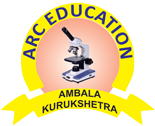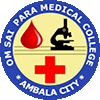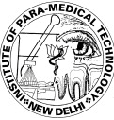B.Sc. in Radiation Technology
About:
A Bachelor
of Science (B.Sc.) in Radiation Technology is an undergraduate degree program
that focuses on the study and application of radiation in various fields. It
combines elements of physics, biology, chemistry, and medical science to train
students in the safe and effective use of radiation in healthcare, research,
industry, and other related areas.
Here is some information about
the B.Sc. program in Radiation Technology:
Curriculum: The curriculum of
the B.Sc. in Radiation Technology typically includes courses in radiation
physics, radiation biology, radiation safety and protection, radiographic
techniques, radiation therapy, nuclear medicine, radiopharmacy, radiation
imaging, medical imaging technologies, anatomy, physiology, patient care, and
medical ethics. The program may also include laboratory work, clinical
rotations, and research projects.
Radiation Physics: This area of
study covers the principles and properties of radiation, including the
interaction of radiation with matter, radiation measurement techniques,
radiation detection and dosimetry, radiation shielding, and radiation safety
regulations.
Radiation Biology: This field
focuses on the biological effects of radiation on living organisms, including
cells, tissues, and organs. It covers topics such as radiation-induced damage,
biological effects of different types of radiation, radiation therapy, and
radiation protection.
Radiation Safety and Protection:
This aspect of the program teaches students about the safe handling, storage,
and disposal of radioactive materials. It includes radiation safety
regulations, radiation protection practices, radiation monitoring and control,
and emergency procedures.
Radiographic Techniques: This
area focuses on the use of radiation in medical imaging, such as X-rays,
computed tomography (CT), and fluoroscopy. Students learn about imaging
equipment, patient positioning, image acquisition, image analysis, and quality
control in radiography.
Radiation Therapy: This field
involves the use of radiation for the treatment of cancer and other diseases.
Students learn about treatment planning, radiation delivery techniques,
radiation oncology, patient care during radiation therapy, and the management
of radiation side effects.
Nuclear Medicine: This area
explores the use of radioactive materials for diagnostic imaging and
therapeutic purposes. Students learn about radiopharmaceuticals, nuclear
imaging techniques (such as positron emission tomography or single-photon
emission computed tomography), radiation detection and imaging devices, and
interpretation of nuclear medicine images.
Career Opportunities: Graduates
of a B.Sc. program in Radiation Technology can pursue various career paths.
They may work as radiation therapists, radiographers, nuclear medicine
technologists, medical dosimetrists, radiation safety officers, radiology
consultants, or research associates in healthcare facilities, cancer centers,
radiology clinics, nuclear medicine departments, government agencies, and
research institutions.
Continuing Education: Some
graduates may choose to pursue advanced degrees, such as Master's or Ph.D.
programs in radiation sciences, medical physics, or related fields, to further
specialize and advance their careers.
It's important to note that
specific program structures and course offerings may vary between universities.
If you are considering pursuing a B.Sc. in Radiation Technology, it is
advisable to research the curriculum and admission requirements of the
institutions you are interested in to make an informed decision.
B.Sc. in Radiation Technology
Highlights:
Certainly!
Here are some highlights of a B.Sc. in Radiation Technology presented in
tabular form:
|
Program Highlights
|
|
|
Degree
|
Bachelor of Science (B.Sc.) in
Radiation Technology
|
|
Duration
|
Typically 3 to 4 years
|
|
Focus Areas
|
Radiation physics, radiation
biology, radiation safety, radiographic techniques,
|
|
radiation therapy, nuclear
medicine, medical imaging technologies, etc.
|
|
Curriculum
|
Courses in radiation physics,
radiation biology, radiographic techniques, radiation
|
|
safety and protection,
radiation therapy, nuclear medicine, medical imaging
|
|
technologies, anatomy,
physiology, patient care, and medical ethics
|
|
Laboratory Work
|
Practical sessions and
laboratory work are included in the program
|
|
Clinical Rotations
|
Opportunities for clinical
rotations and hands-on experience in healthcare settings
|
|
Research Projects
|
Research projects may be
incorporated into the curriculum
|
|
Career Options
|
Radiation therapist,
radiographer, nuclear medicine technologist, medical dosimetrist,
|
|
radiation safety officer,
radiology consultant, research associate, etc.
|
|
Further Education
|
Graduates can pursue Master's
or Ph.D. programs in radiation sciences, medical
|
|
physics, or related fields for
advanced specialization
|
|
Employment Settings
|
Healthcare facilities, cancer
centers, radiology clinics, nuclear medicine
|
|
departments, government
agencies, research institutions, etc.
|
Please note that the specific
details may vary between institutions, and it's always recommended to refer to
the official websites or prospectus of the universities you are interested in
for accurate and up-to-date information about their B.Sc. in Radiation
Technology program.
B.Sc. in Radiation Technology
Eligibility Criteria:
The
eligibility criteria for a B.Sc. in Radiation Technology can vary depending on
the institution and country. However, here are some general eligibility
requirements commonly found in many universities:
- Academic Qualifications: Applicants are
typically required to have completed high school or an equivalent
secondary education recognized by the university or relevant educational
board.
- Educational Background:
A background in science subjects such as physics, chemistry, biology, and
mathematics is usually preferred or required. Some institutions may
specify minimum grades or subject requirements in these subjects.
- Minimum
Grade/Percentage: There is often a minimum grade or percentage requirement
for consideration. This requirement can vary between institutions, and it
is advisable to check with the specific university you are interested in
for their minimum grade or percentage criteria.
- Language Proficiency:
Universities may require proof of English language proficiency for
non-native English speakers. This is usually demonstrated through
standardized tests such as the TOEFL (Test of English as a Foreign
Language) or IELTS (International English Language Testing System).
Minimum scores may be set by the institution.
- Entrance Exams: Some
universities may require applicants to take entrance exams specific to
their institution or country. These exams assess the applicant's knowledge
in subjects such as physics, chemistry, and biology. Examples of such
entrance exams include the SAT (Scholastic Assessment Test) or ACT
(American College Testing).
- Additional
Requirements: Universities may have additional requirements such as
letters of recommendation, personal statements, or interviews as part of
the application process. It's essential to review the specific application
guidelines provided by the university.
It's important to note that
eligibility criteria can vary between institutions and countries, so it is
recommended to visit the official website of the university or contact their
admissions office for precise and up-to-date information regarding the
eligibility criteria for a B.Sc. in Radiation Technology program.
B.Sc. in Radiation Technology
Admission Process 2023-24:
The
admission process for a B.Sc. in Radiation Technology can vary depending on the
university and country. However, here is a general overview of the admission
process that you can expect for the 2023-24 academic year:
- Research and Identify Universities: Start by
researching universities that offer a B.Sc. in Radiation Technology.
Consider factors such as reputation, curriculum, facilities, and location
to find institutions that align with your preferences and academic goals.
- Check Admission
Requirements: Visit the official websites of the universities you are
interested in to review their specific admission requirements for the
B.Sc. in Radiation Technology program. Take note of the eligibility
criteria, required documents, application deadlines, and any additional
requirements.
- Prepare Required
Documents: Gather the necessary documents for your application. Typical
documents may include:
- Completed application
form (submitted online or in hard copy)
- High school
transcripts or equivalent educational certificates
- Proof of English
language proficiency (e.g., TOEFL, IELTS) for non-native English speakers
- Entrance exam scores
(if required)
- Letters of
recommendation (if required)
- Personal statement or
essay (if required)
- Resume or curriculum
vitae (CV)
- Copy of identification
(e.g., passport)
- Submit Application:
Complete the application form and submit it along with the required
documents by the designated deadline. Some universities may have an online
application portal, while others may require a physical submission.
- Pay Application Fee:
Some universities may require an application fee, which needs to be paid
as per their instructions. Make sure to follow the payment process
outlined by the university.
- Entrance Exams or
Interviews: If the university requires entrance exams or interviews,
prepare for them accordingly. Familiarize yourself with the exam format,
study relevant subjects, and practice sample questions. Similarly, if
interviews are part of the admission process, be prepared to discuss your
interest in radiation technology and your academic background.
- Await Admission
Decision: After submitting your application, you will need to wait for the
admission decision. The university will review your application,
documents, and other requirements before making a decision. The timeline
for receiving admission decisions can vary, so refer to the university's
guidelines for an approximate timeframe.
- Acceptance and
Enrollment: If you receive an admission offer, carefully review the offer
letter, including any financial aid or scholarship information. If you
decide to accept the offer, follow the university's instructions for
enrollment, which may involve paying a deposit or confirming your
acceptance.
It's important to note that the
specific admission process and timeline can vary between institutions.
Therefore, it is crucial to visit the official websites of the universities you
are interested in and follow their instructions for the 2023-24 admission
cycle.
B.Sc. in Radiation Technology
Top Colleges in India:
In India,
several colleges and universities offer B.Sc. programs in Radiation Technology.
Here are some of the top colleges in India known for their programs in this
field:
- All India Institute of Medical Sciences
(AIIMS), New Delhi
- Post Graduate Institute
of Medical Education and Research (PGIMER), Chandigarh
- Tata Memorial Centre
(TMC), Mumbai
- Christian Medical
College (CMC), Vellore
- King George's Medical
University (KGMU), Lucknow
- Amrita Vishwa
Vidyapeetham, Kochi
- Sri Ramachandra
Institute of Higher Education and Research, Chennai
- Manipal Academy of
Higher Education, Manipal
- Jawaharlal Institute of
Postgraduate Medical Education and Research (JIPMER), Puducherry
- Kasturba Medical
College (KMC), Mangalore
These institutions are
well-known for their strong academic programs, research facilities, experienced
faculty, and clinical exposure. However, it's important to conduct thorough
research and review each institution's specific offerings, curriculum, and
admission requirements before making a decision. Additionally, rankings and
reputations may change over time, so it's advisable to consult the latest
rankings and resources for up-to-date information on the top colleges in India
for B.Sc. in Radiation Technology.
B.Sc. in Radiation Technology
Syllabus:
The
specific syllabus for a B.Sc. in Radiation Technology can vary between
universities. However, here is a sample syllabus that provides an overview of
the subjects and topics typically covered in this program:
|
Semester
|
Subjects
|
|
First Semester
|
- Physics I
|
|
- Chemistry I
|
|
- Biology I
|
|
- Mathematics I
|
|
- English Communication Skills
|
|
- Basics of Radiation
Technology
|
|
Second Semester
|
- Physics II
|
|
- Chemistry II
|
|
- Biology II
|
|
- Mathematics II
|
|
- Medical Terminology
|
|
- Radiation Physics
|
|
Third Semester
|
- Anatomy and Physiology
|
|
- Radiographic Techniques I
|
|
- Radiation Biology
|
|
- Radiation Safety and
Protection
|
|
- Medical Imaging Technologies
|
|
Fourth Semester
|
- Pathology and Microbiology
|
|
- Radiographic Techniques II
|
|
- Radiation Therapy
|
|
- Nuclear Medicine
|
|
- Research Methodology
|
|
- Professional Ethics and
Medical Laws
|
|
Fifth Semester
|
- Radiographic Techniques III
|
|
- Quality Assurance in
Radiography
|
|
- Patient Care and Management
|
|
- Radiopharmacy
|
|
- Diagnostic Imaging
Modalities
|
|
Sixth Semester
|
- Advanced Imaging Techniques
|
|
- Radiation Oncology
|
|
- Imaging Informatics
|
|
- Research Project
|
|
- Clinical Internship
|
Please note that this is a
general representation, and the actual syllabus may vary between institutions.
The number of semesters and specific courses can differ. It's advisable to
refer to the official websites or prospectus of the universities you are interested
in for the most accurate and up-to-date information regarding the syllabus for
the B.Sc. in Radiation Technology program.
B.Sc. in Radiation Technology
Job and Salary in India:
Here is a
table outlining some job roles and estimated salary ranges for individuals with
a B.Sc. in Radiation Technology in India:
|
Job Role
|
Description
|
Salary Range (Approximate)
|
|
Radiation Therapist
|
Administers radiation therapy
to patients, operates treatment machines
|
INR 3,00,000 - 6,00,000 per
annum
|
|
Radiographer
|
Performs diagnostic imaging
procedures using X-rays and other methods
|
INR 2,50,000 - 5,00,000 per
annum
|
|
Nuclear Medicine Technologist
|
Prepares and administers
radioactive substances for diagnostic imaging
|
INR 3,00,000 - 6,50,000 per
annum
|
|
Radiology Consultant
|
Provides expert advice and
consultation on radiological issues
|
INR 6,00,000 - 12,00,000 per
annum
|
|
Radiation Safety Officer
|
Ensures compliance with
radiation safety regulations and protocols
|
INR 4,00,000 - 8,00,000 per
annum
|
|
Research Associate
|
Conducts research in radiation
technology and related areas
|
INR 3,00,000 - 6,00,000 per
annum
|
Please note that the salary
ranges provided are approximate and can vary based on factors such as
experience, location, employer, and industry. These figures are meant to give
you a general idea of the salary potential for individuals with a B.Sc. in Radiation
Technology in India. It's also worth mentioning that with experience, further
specialization, and higher education, individuals may have opportunities for
career advancement and increased earning potential.
Additionally, the job market and
salary ranges can change over time, so it's advisable to research current
trends and consult reliable sources such as job portals and industry reports
for the most up-to-date information on job prospects and salaries in the field
of Radiation Technology in India.
B.Sc. in Radiation Technology
FAQ:
Certainly!
Here are some frequently asked questions (FAQs) about a B.Sc. in Radiation
Technology:
What is
Radiation Technology?
- Radiation Technology involves the study and
application of radiation in various fields, such as healthcare, research,
and industry. It includes the use of radiation for diagnostic imaging,
radiation therapy, nuclear medicine, and radiation safety.
What are
the career options after completing a B.Sc. in Radiation Technology?
2.
Graduates can pursue careers as radiation
therapists, radiographers, nuclear medicine technologists, medical
dosimetrists, radiation safety officers, radiology consultants, or research
associates in healthcare facilities, cancer centers, radiology clinics,
government agencies, and research institutions.
Is it
necessary to have a background in science to pursue a B.Sc. in Radiation
Technology?
3.
Yes, most universities prefer or require
applicants to have a background in science subjects such as physics, chemistry,
biology, and mathematics. This foundation in science is essential for
understanding the principles and applications of radiation technology.
What skills
are important in the field of Radiation Technology?
4.
Some essential skills for professionals in
Radiation Technology include technical proficiency in operating radiation
equipment, knowledge of radiation safety protocols, strong communication and
interpersonal skills, critical thinking, problem-solving abilities, attention
to detail, and empathy towards patients.
Are there
any specific certifications or licenses required to work in Radiation
Technology?
5.
The requirements for certifications and
licenses can vary depending on the country and specific job role. In some
cases, professionals may need to obtain certifications such as the American
Registry of Radiologic Technologists (ARRT) certification or licenses from
local regulatory bodies. It is important to research and comply with the
specific regulations in your region.
Can I
pursue further education after completing a B.Sc. in Radiation Technology?
6.
Yes, after completing a B.Sc. in Radiation
Technology, you can pursue advanced degrees such as Master's or Ph.D. programs
in radiation sciences, medical physics, or related fields. These higher degrees
can provide opportunities for specialization and career advancement in
research, academia, or clinical practice.
How is the
job market for graduates in Radiation Technology?
7.
The job market for graduates in Radiation
Technology is generally favorable, especially in healthcare settings. With the
increasing use of radiation-based technologies in medical diagnosis and
treatment, there is a growing demand for skilled professionals in this field.
However, job opportunities and market conditions can vary regionally.
Is
Radiation Technology a safe career choice?
8. Radiation Technology, when practiced following
safety guidelines and regulations, is considered a safe career choice.
Professionals are trained in radiation safety and protection measures to
minimize exposure risks. Strict adherence to safety protocols ensures the
well-being of both patients and practitioners.
Remember that specific
information and details may vary between institutions and countries. It's
always advisable to refer to the official websites of universities or consult
with academic advisors for accurate and up-to-date information regarding a B.Sc.
in Radiation Technology program.
10 Matched Colleges. Narrow results or view all


 +91 9871242233,9871242244
+91 9871242233,9871242244  support@admissionwave.com
support@admissionwave.com 
























